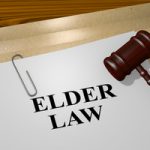Using DIY Legal Forms? It’s a “Penny-Wise and Pound-Foolish” Idea the Court Says
Recently, the Florida Supreme Court used a phrase we do not often hear in court opinions to describe a decedent’s actions in planning her estate: “Penny-wise and pound-foolish.” Just what prompted the Court to use this cautionary axiom? It was a woman’s use of an E-Z Legal Form for her will.
You have probably noticed advertisements about the wonders of DIY legal forms. They suggest a pre-printed form can substitute for an attorney’s advice and save you bundles of money in the process. In estate planning, you may feel that you can save money up-front using EZ form documents. What you may never know, however, is how high the costs will run for your beneficiaries in sorting out the mess left behind when “EZ” turns into “complicated and problematic.”
The penny-wise case started when, in an attempt to plan her estate, Ann Aldrich completed an “E-Z Legal Form” as her will. On the form, she listed in great detail her possessions and bank accounts that she intended to go to her sister unless her sister predeceased her, in which case the possessions were to go to her brother, James Aldrich. Her sister died before her, leaving her additional money and property, but Ms. Aldrich never revised her will. Later, Ms. Aldrich attempted to write a codicil to the will that gave “all my worldly possessions” to her brother, but the self-written codicil was determined to be invalid.
After Ms. Aldrich died, her brother asked the trial court to determine who would inherit the property Ms. Aldrich acquired after she wrote her will. By this time, two of Ms. Aldrich’s nieces from a pre-deceased brother were claiming entitlement to a share of the estate as Ms. Aldrich’s intestate heirs.
The case made its way to the Florida Supreme Court, which held that the after-acquired property would pass under intestacy laws because the E-Z Legal Form will had no residuary clause or general bequests that could cause those assets to pass to James Aldrich. The fact that the E-Z Legal From failed include a residuary clause meant any property Ms. Aldrich did not specifically list on the form would be shared by the nieces.
As the concurring Justice noted in her opinion, the result was unfortunate but it resulted from Ms. Aldrich’s own actions: “[T]he fact that Ms. Aldrich wrote her will using a commercially available form, an ‘E-Z Legal Form,’ which did not adequately address her specific needs—apparently without obtaining any legal assistance.” Ms. Aldrich’s intent was clear, yet her use of a preprinted form prevented her wishes from being carried out.
What can you learn from the Aldrich family feud? First, please recognize that it is unwise to draft your own estate planning documents. Second, remember that your assets may change over time, so drafting your will or trust with overly detailed particularity can be a bad idea. Lastly, consider the possibility of future probate litigation and contemplate how you can avoid being “penny-wise and pound-foolish” when making decisions about your estate and your future.



